The Economic and Financial Crimes Commission (EFCC) is a Nigerian government agency established in 2003 to combat economic and financial crimes. Its primary role is to prevent, investigate, and prosecute offenses such as fraud, money laundering, and corruption.
The EFCC upholds laws designed to protect the nation’s economy and ensure accountability by bringing offenders to justice. In addition to enforcement, it engages in public education to raise awareness and discourage financial crimes. The commission’s overarching goal is to build a Nigeria rooted in integrity, transparency, and financial responsibility.
READ ALSO: List Of All Departments In EFCC In Nigeria
List Of All EFCC Chairmen In Nigeria From 2003 Till Date
The EFCC is a Nigerian agency focused on fighting crimes like money laundering and fraud involving financial transactions.
Its history reflects Nigeria’s ongoing fight against corruption and international demands for cleaner financial practices.
Although the EFCC was launched in 2003, it was based on the Economic and Financial Crimes Commission (Establishment) Act passed in 2002 by the Nigerian government.
The commission was created partly because the Financial Action Task Force (FATF) had identified Nigeria as one of the countries not doing enough to stop money laundering.
The EFCC aimed to improve Nigeria’s global image and reduce corruption. Mallam Nuhu Ribadu, the first chairman, played a big role in getting the agency off the ground.
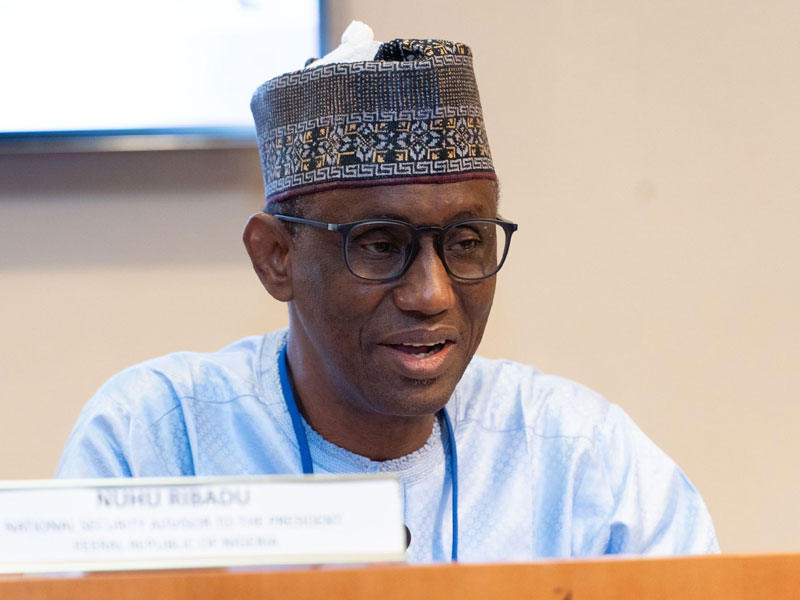
During his leadership, the EFCC became known for taking strong action against corruption, investigating major cases, and successfully taking powerful people like ex-governors and bank officials to court.
In 2005, the EFCC gained national attention after arresting Diepreye Alamieyeseigha, the former governor of Bayelsa State, for allegedly laundering money.
By September 2006, the EFCC was investigating corruption cases involving 31 out of Nigeria’s 36 state governors. Then in December 2007, after thorough investigations, the Nigerian government cleared the Vaswani brothers of any wrongdoing.
This ruling allowed them to return to Nigeria, though it drew a lot of media attention. In April 2008, the EFCC started investigating Senator Iyabo Obasanjo-Bello, daughter of ex-President Olusegun Obasanjo.
She was accused of receiving stolen money from the Ministry of Health. A major leadership change came on June 6, 2008, when Chief Farida Mzamber Waziri took over as EFCC chairperson.
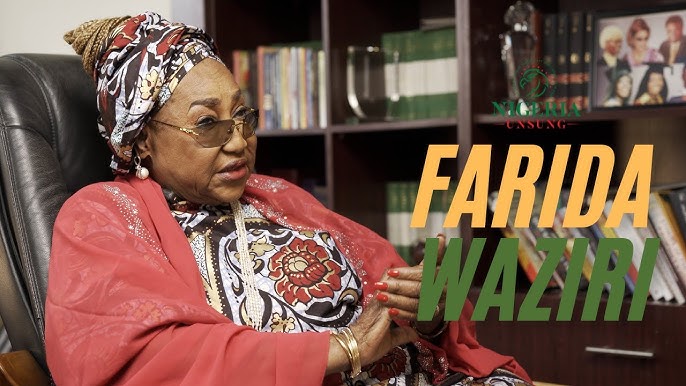
She replaced Ribadu, who was removed from his role as Assistant Inspector General of Police. While Waziri led the EFCC, the agency kept fighting corruption but ran into new difficulties.
One major event during her time was the killing of Abdullahi Muazu, who led the EFCC’s Forensic Unit, on September 14, 2010.
This shocking event raised alarms about the risks faced by those working in anti-corruption roles. Later, on November 23, 2011, President Goodluck Jonathan removed Waziri and appointed Ibrahim Lamorde as the acting chairman.
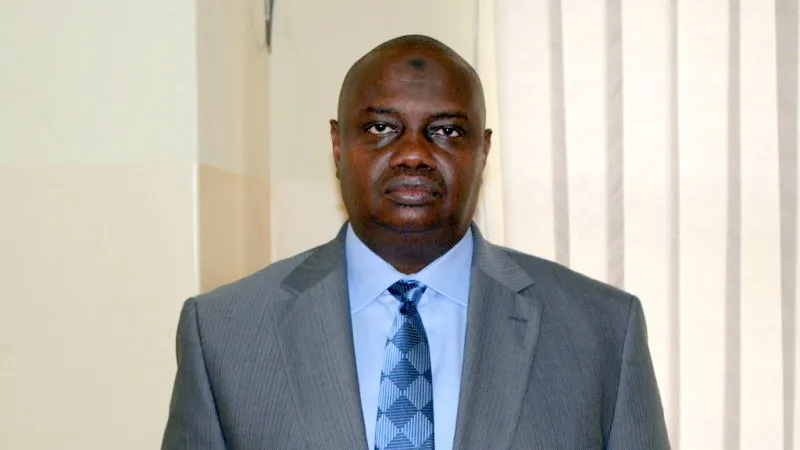
Lamorde’s appointment was officially confirmed by the Nigerian Senate on February 15, 2012. However, his time in office involved continued investigations and also controversies about his conduct.
Another leadership change happened when President Muhammadu Buhari dismissed Lamorde on November 9, 2015, and named Ibrahim Magu as the new chairman.
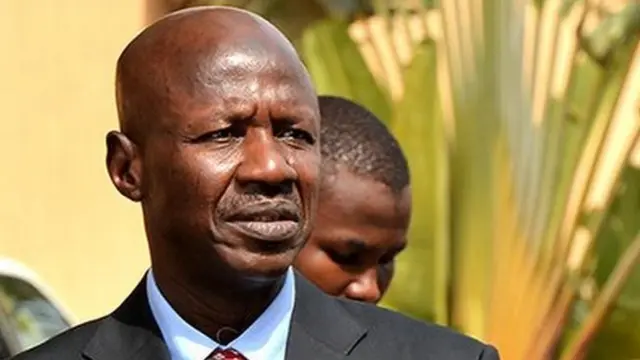
Magu was known for his bold efforts against corruption, but his leadership was troubled by controversies. The Senate refused to confirm him twice due to unfavorable security reports.
On July 6, 2020, Magu was arrested over corruption allegations and was suspended shortly after. Mohammed Umar Abba served as acting chairman until February 16, 2021, when Abdulrasheed Bawa was appointed as the new EFCC chairman.
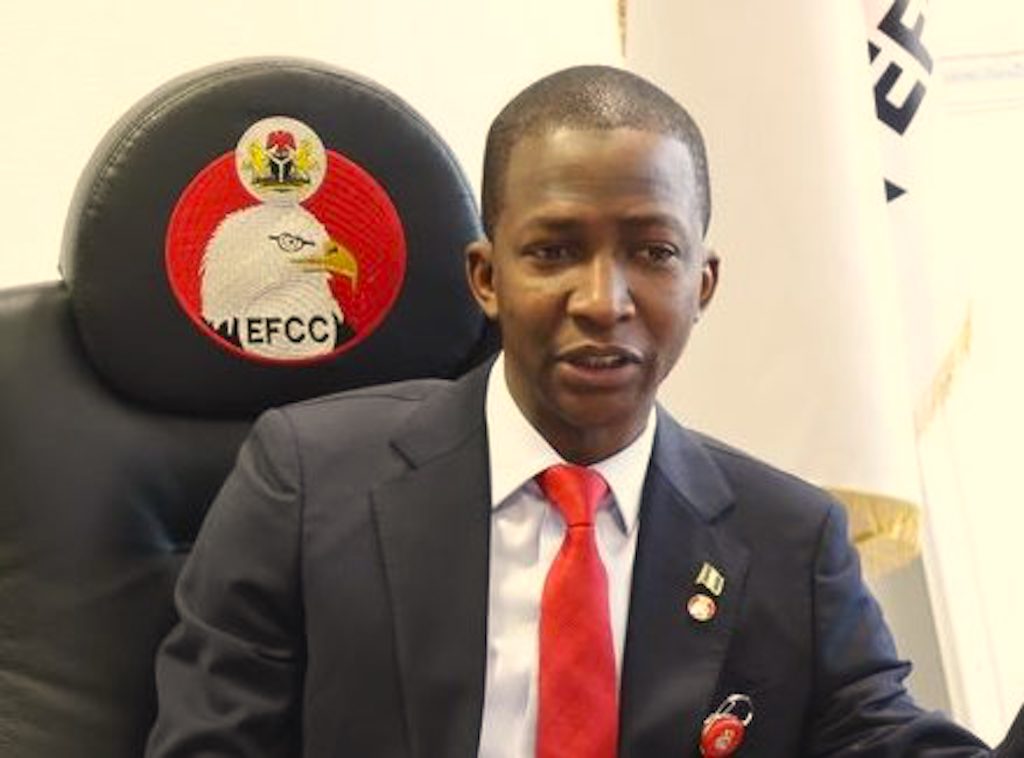
Bawa’s leadership brought new hopes for a stronger fight against financial crimes.
However, he was criticized for not making enough impact in the fight against corruption. Most recently, on October 12, 2023, President Bola Tinubu appointed Ola Olukoyede as the new EFCC chairman.
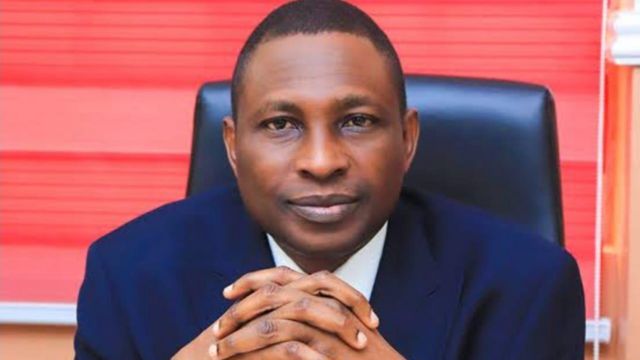
READ ALSO: EFCC Meaning and Key Functions Explained Clearly
List Of All EFCC Chairmen In Nigeria From 2003 Till Date
| Name | Tenure |
|---|---|
| Mallam Nuhu Ribadu | 2003-2007 |
| Mrs. Farida Waziri | 2008-2011 |
| Ibrahim Lamorde | 2012-2015 |
| Abdul Rasheed Bawa | 2021-2023 |
| Olanipekun Olukoyede | 2023 – Date |
Who Was The First Chairman Of EFCC In Nigeria?
The first Chairman of the Economic and Financial Crimes Commission (EFCC) in Nigeria was Nuhu Ribadu. Born on November 21, 1960, Nuhu Ribadu is a notable Nigerian politician and retired police officer.

He was appointed to lead the EFCC in 2003 by then-President Olusegun Obasanjo. This was after the EFCC was established to tackle financial crimes and corruption in Nigeria.
During his time as Chairman, Ribadu made a notable impact in the fight against corruption. Under his watch, the EFCC pursued numerous high-profile cases.
This included investigations and prosecutions involving former state governors and other top officials who were accused of corruption. Ribadu famously claimed that Nigerian governments had misappropriated over $380 billion since the country’s independence.
His efforts led to many arrests and convictions of corrupt individuals. One notable case was that of Tafa Balogun, a former Inspector General of Police, who was sentenced to jail and ordered to return £150 million.
However, Ribadu’s tenure also faced numerous threats and attempts on his life due to his strong anti-corruption stance. In 2008, he was removed from his position as EFCC Chairman amidst political controversies.
Many saw this as an attempt to undermine his fight against corruption. After his removal, Ribadu went into exile but returned to Nigeria in 2010. He then joined the politics, running for the presidency in 2011 and later seeking the governorship of Adamawa State.
In June 2023, Ribadu made a comeback to public service when he was appointed as the National Security Adviser by President Bola Tinubu.
Who Is The Current Chairman Of EFCC In Nigeria?
Olanipekun Olukoyede, also known as Ola, is the current Executive Chairman of the Economic and Financial Crimes Commission (EFCC) in Nigeria. He took on this role on October 12, 2023, after being appointed by President Bola Ahmed Tinubu.

Born on October 14, 1969, in Ikere-Ekiti, Ekiti State, Olukoyede is not only a lawyer but also a pastor in the Redeemed Christian Church of God, where he serves at the City of Refuge in Lagos.
Olukoyede studied at Lagos State University and the University of Lagos. To further his education, he attended the Kennedy School of Executive Education at Harvard University.
Also, he had training from the Institute of Arbitration in Paris and Lagos, specializing in arbitration. Olukoyede served as the Chief of Staff to the Executive Chairman from 2016 to 2018 and then as the Secretary of the EFCC from 2018 to 2023. His experience spans over 22 years in regulatory compliance, fraud management, and corporate intelligence.
He is also a member of the Fraud Advisory Panel in the UK and has contributed to the Federal Government’s Technical Committee on the Repositioning of the Nigerian Financial Intelligence Unit. His appointment as EFCC Chairman came after the suspension of Abdulrasheed Bawa, the former Chairman.

Try and help other one’s